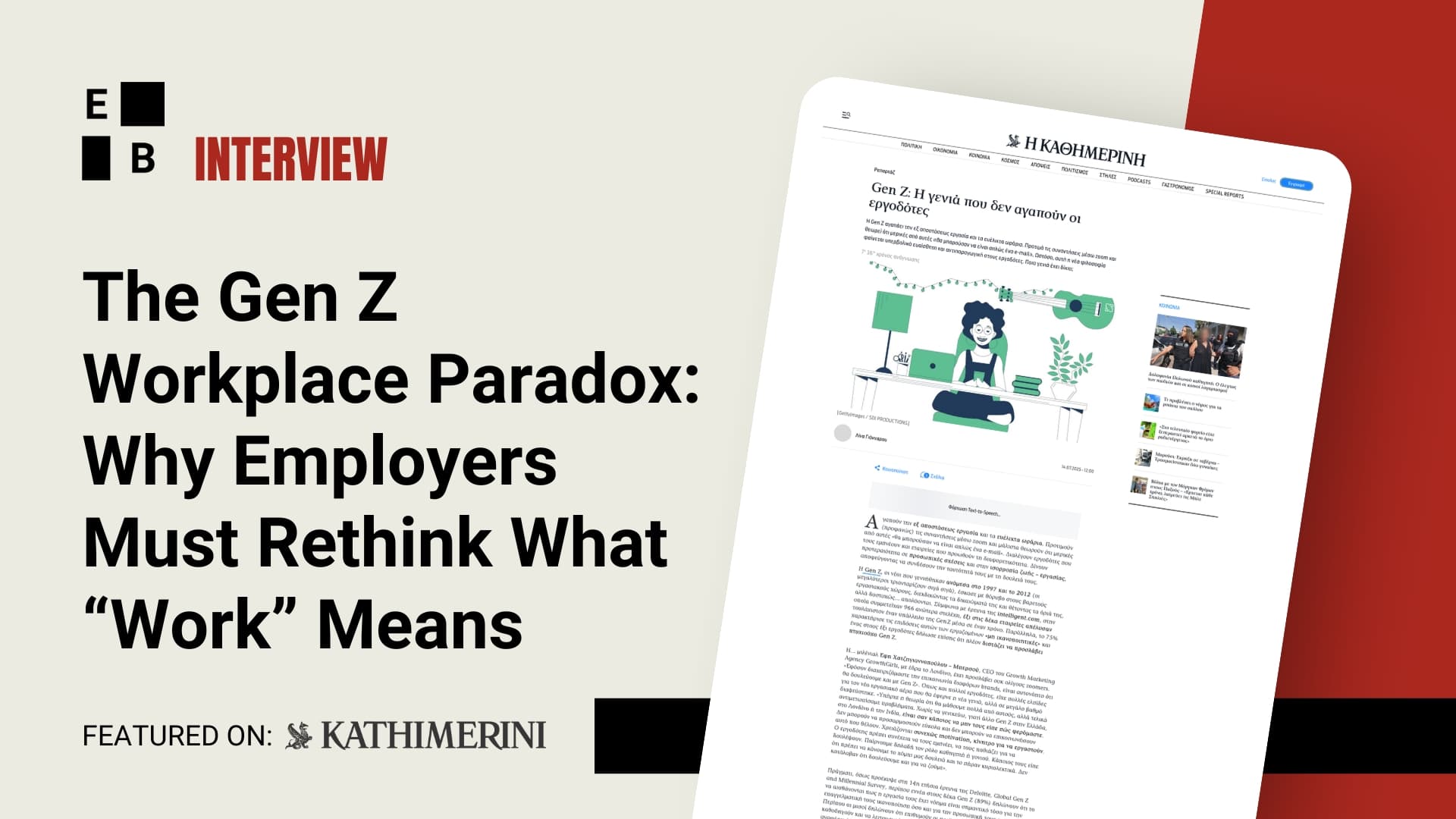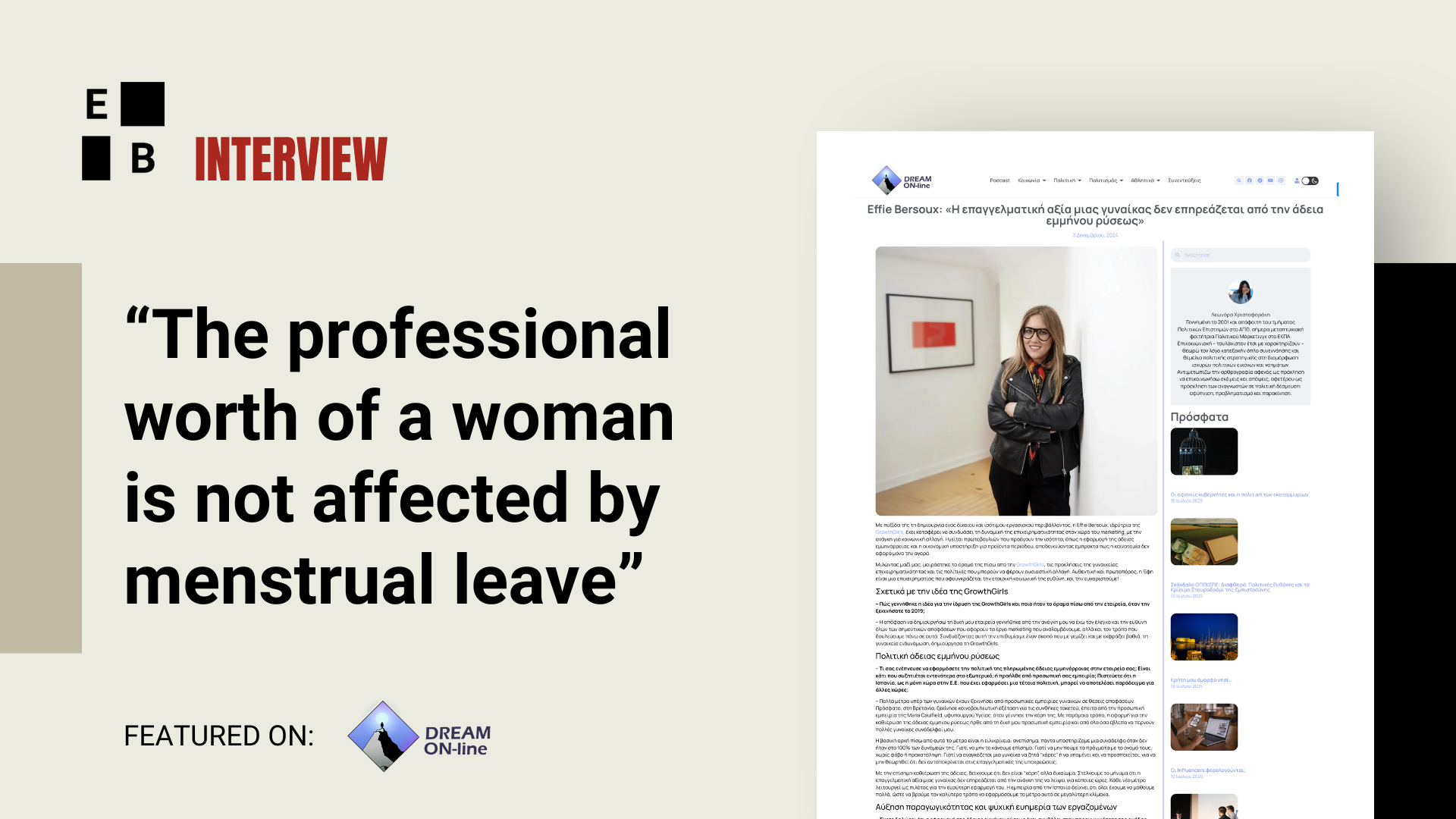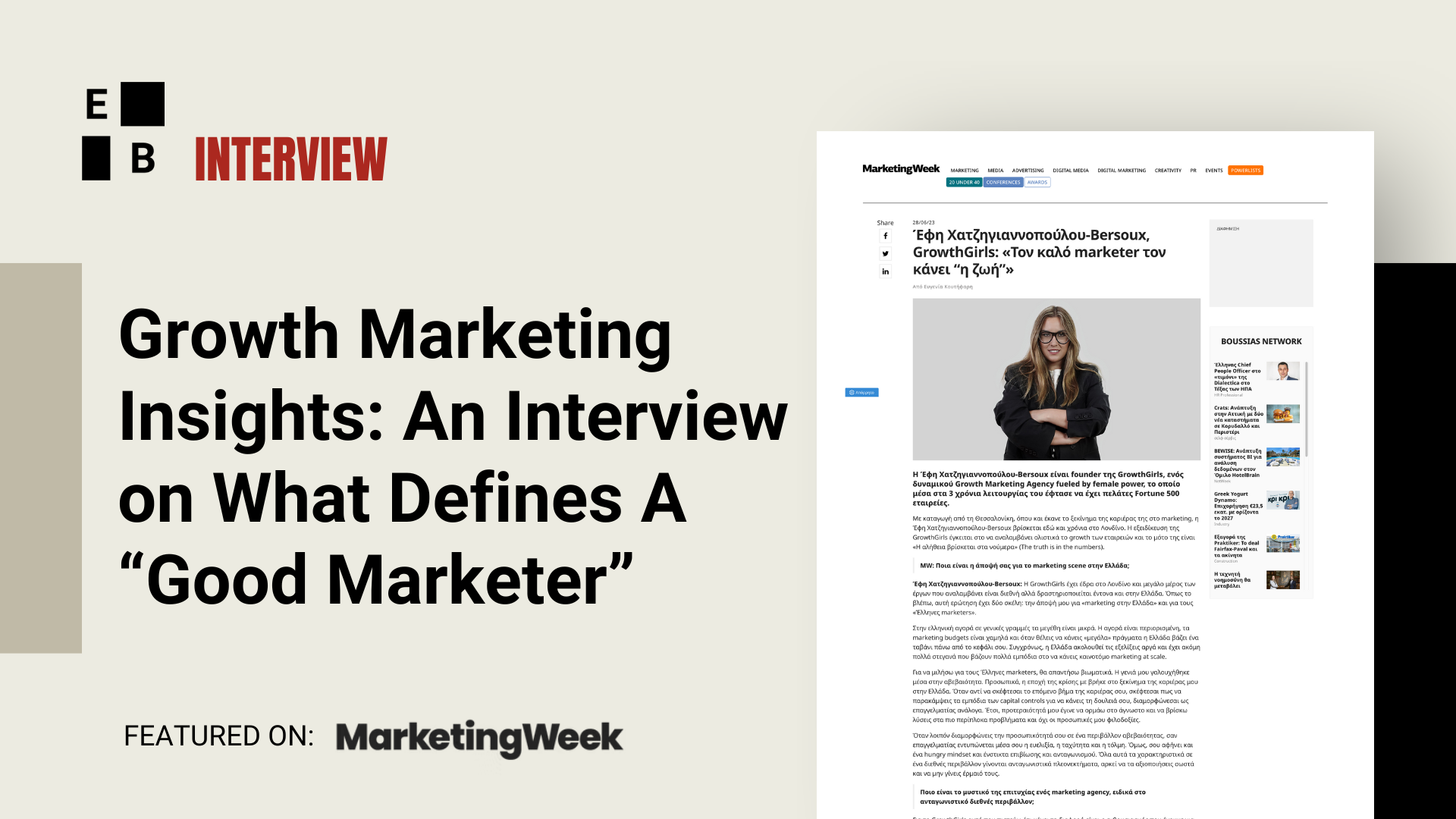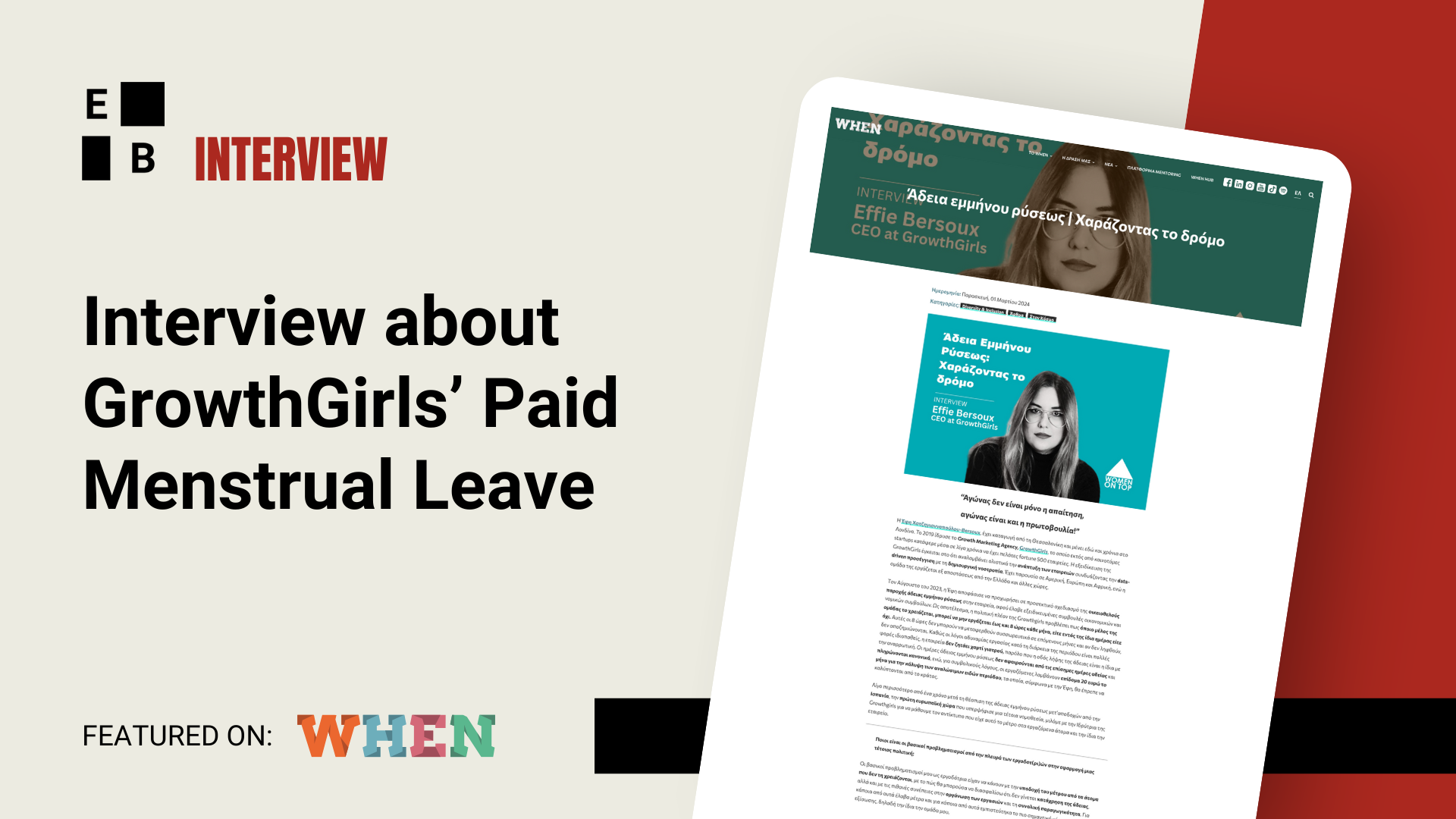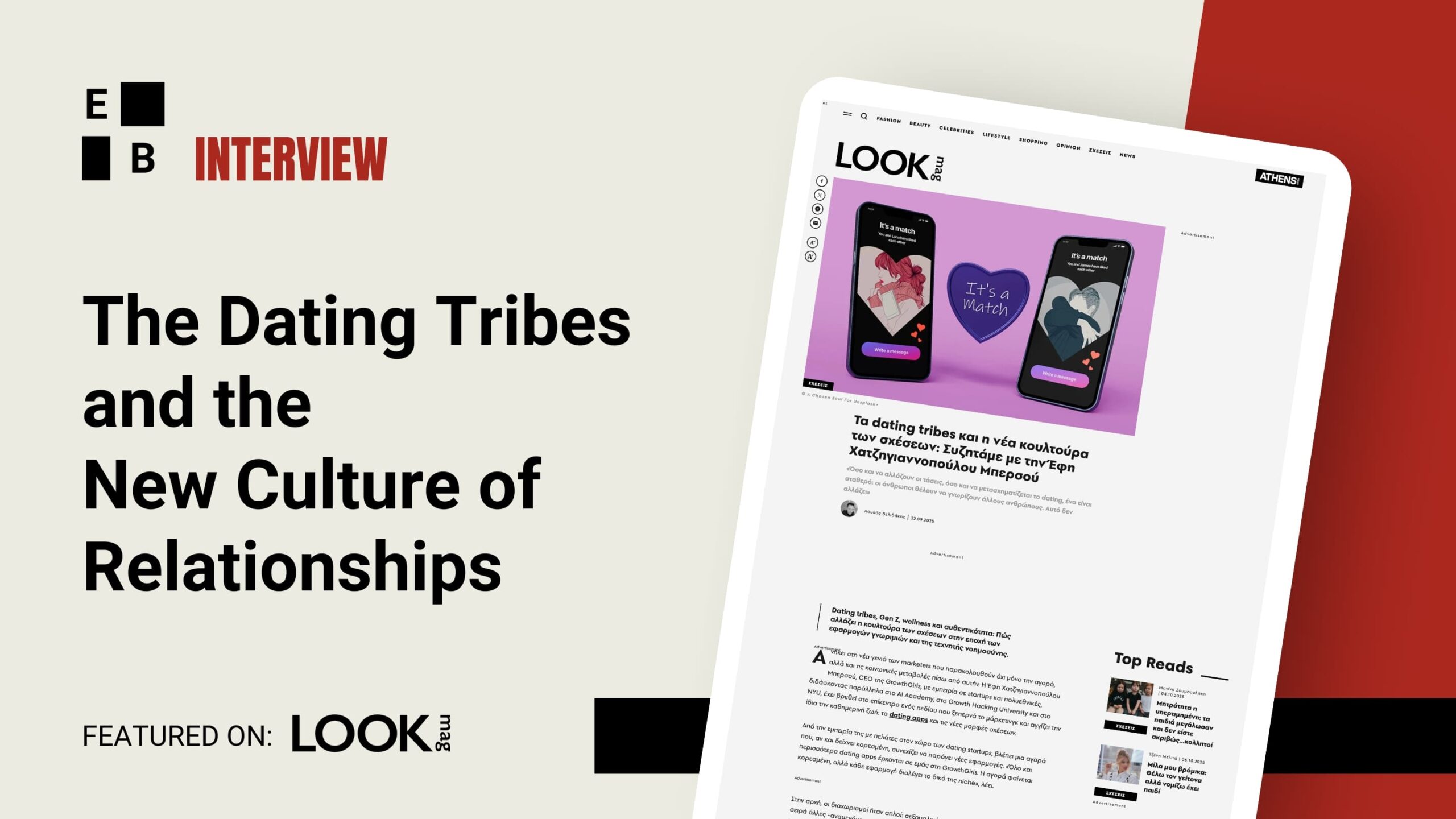
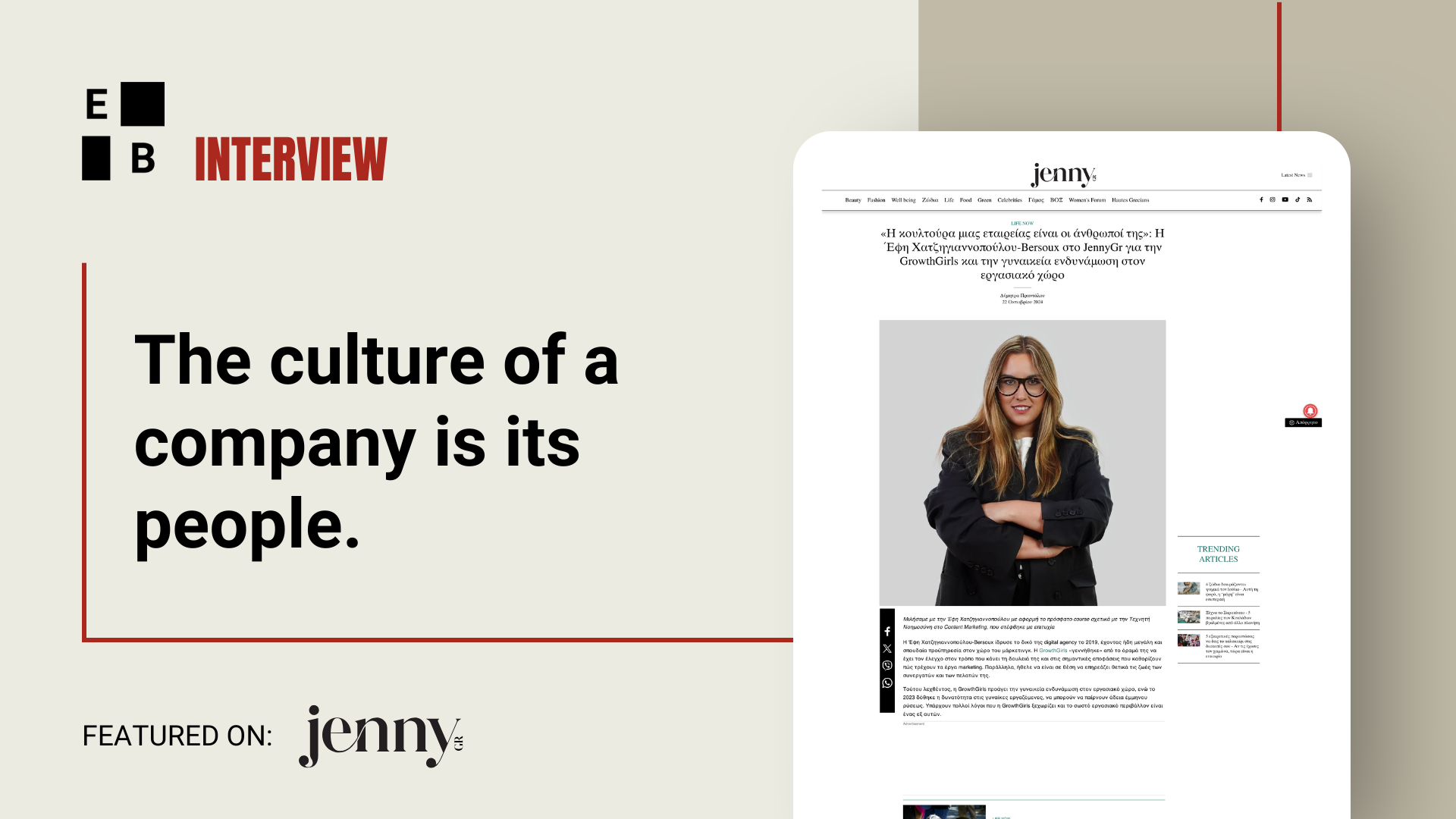
Growthgirls and female empowerment in the workplace as discussed in an interview on Jenny.gr.
I saw every difficulty as a welcoming challenge that takes me out of my comfort zone and pushes me and my team to do better. One of the biggest challenges I faced as the company grew was ensuring that the company’s vision and values were kept intact by the entire team, which requires constant communication and dedication.
On a personal level, the challenge was to stay focused on the big picture, gaining the discipline required on entrepreneurship, while trying to keep the right balance between making the right decisions and empathy (here I believe being an empathetic leader would fit better). I am very proud that through this process of evolution, the company has had excellent growth while maintaining the standards high.
What differentiates GrowthGirls as a growth marketing agency is our ability to combine the efficiency of quick data-driven decisions with a creative and innovative approach. This combination gives us the agility that companies need for rapid growth, whether they are startups or large global organizations.
The data speaks for itself, as Greece lags behind in many relevant indicators. The racial gap does not only concern companies but, above all, society itself. The culture of a company is its people. It cannot, therefore, be cut off from the society in which they live and work. No matter how hard a company tries to set its own rules and create its own “microcosm,” deeply rooted mindsets can only be changed substantially through education and societal change.
“The culture of a company is its people.“
For better or worse, we can either fear or claim. You can’t have both at the same time. For a long time there has been a view that in order to succeed a woman must learn to ignore her nature and that listening to her body is seen as a sign of weakness. But our strength comes from our ability to take care of ourselves and this is true for all people, not just women.
“Setting limits shows strength, not weakness. Women have proven that their professional value is independent of their marital status, so stigma arises from prejudice and it is against this that everyone should raise their voice.“
Change needs to come from both sides. Employers need to ensure a healthy and fair working environment and female workers need to claim what they are entitled to without fear. Leave is not a “favor”, it is a right. It is impossible to achieve female empowerment in the workplace without understanding this.
A woman should never be put in that position. Such a question underestimates the value of her abilities and shows a lot about a company’s culture. The only answer to something like that would be that it has nothing to do with her skills and what she can contribute in terms of value.
Clarity in communication, modernized (or streamlined) processes and giving them the right “space” to develop.
AI has brought possibilities that have never existed before. We are talking about a technological revolution that has transformed our work. For example, it can automate repetitive tasks and implement the “boring” time-consuming tasks, freeing up time for more creative and strategic thinking. It allows for the quick use of data and information to create personalized marketing and forecasts that allow us to make better decisions. It improves the quality of our work with its incredible capabilities in fast editing of text, images, video, audio.
“As Bill Gates said, AI is like nuclear power, promising but dangerous. In order for it not to be dangerous, we must learn to use it properly.“
For the last few years we have been teaching courses on AI, through Growth Hacking University and AI Academy. Our first course was on AI in Content Marketing. Since then we have developed many specialist courses covering the wider industry of Marketing, Hospitality, HR and of course Journalism.
Inevitably, journalism is a sector that is directly linked to AI applications. From the creation and optimization of written content, to transcription and subtitling, research and fact-checking, as well as the creation of high-quality videos and visuals and content repurposing.
I was surprised when a journalist told me that even today to a considerable extent, transcription is still done “by listening and writing”. At a time when these can now be done automatically in a few minutes. Not only that, but transcription materials can be edited to be ready for use in various formats. A journalist can see incredible benefits both in the speed of doing their job and the quality of the output, but also open up their horizons and become a small media house.
Find the original interview in Greek here and book a call for a free consultation.

